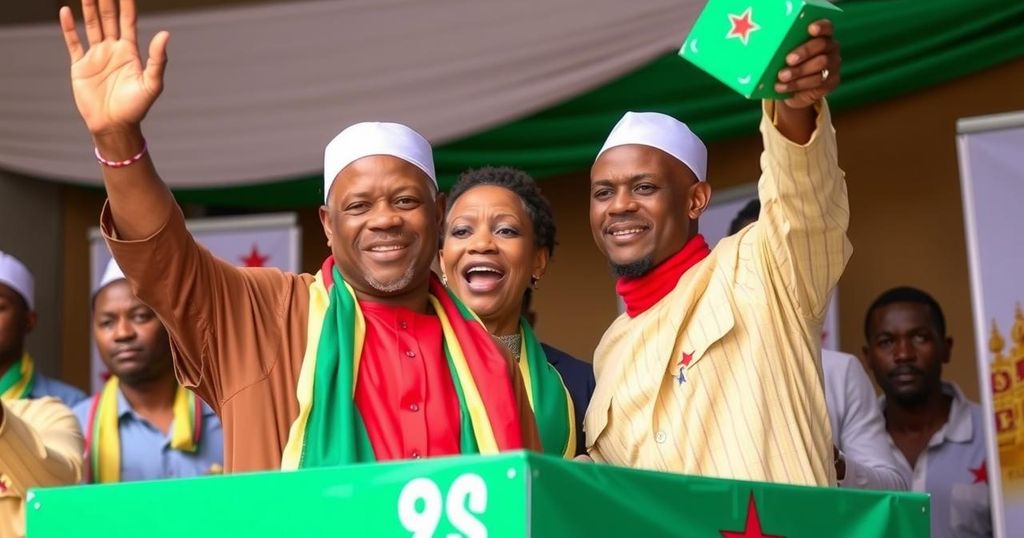Chad’s ruling Patriotic Salvation Movement won a majority in the December parliamentary elections, securing 124 out of 188 seats, despite a boycott from major opposition parties. The electoral process faced criticism as observers deemed it lacking credibility. This election is the first in over ten years, marking a critical moment for President Mahamat Idriss Déby, who took power following the death of his father in 2021.
Chad’s ruling party, the Patriotic Salvation Movement, has emerged victorious in the parliamentary elections held in December, securing a substantial majority despite a boycott from significant opposition parties. Provisional results indicate that the ruling party attained 124 out of the 188 available seats, solidifying the political power of President Mahamat Idriss Déby. With a reported voter turnout of 51.5%, this election marks the first parliamentary contest in over a decade, concluding the transitional governance initiated after Déby’s ascendancy to power following his father’s death in 2021. The opposition, particularly the prominent Transformers party, refused to participate, deeming the electoral process a “charade” and reflecting concerns based on previous electoral credibility issues. This election, which coincided with regional and municipal voting, signifies a critical moment for Chad amid ongoing conflicts, including threats from Boko Haram and a realignment in military relations with France.
Chad’s political landscape has been significantly shaped by the tumultuous transition that began in 2021, when Mahamat Idriss Déby took control after the death of his father, longtime president Idriss Déby Itno. This transitional period led to the first parliamentary elections in a decade, reflecting attempts to move toward a more democratic governance structure. However, the boycott by major opposition parties illustrates the persistent political tensions and questions regarding the legitimacy of electoral processes in Chad, amid increasing security threats in the region and evolving international relations, particularly with France.
The recent legislative election in Chad has reinforced the dominance of the ruling Patriotic Salvation Movement, further entrenching President Mahamat Idriss Déby’s authority in a context marked by opposition boycotts and security challenges. The significant voter turnout and the overwhelming victory of the ruling party raise questions about the prospects for genuine democratic governance, especially given the opposition’s refusal to participate and their characterizations of the electoral process as flawed. As Chad navigates these complex dynamics, its future political landscape remains uncertain amid external pressures and internal dissent.
Original Source: www.rfi.fr






